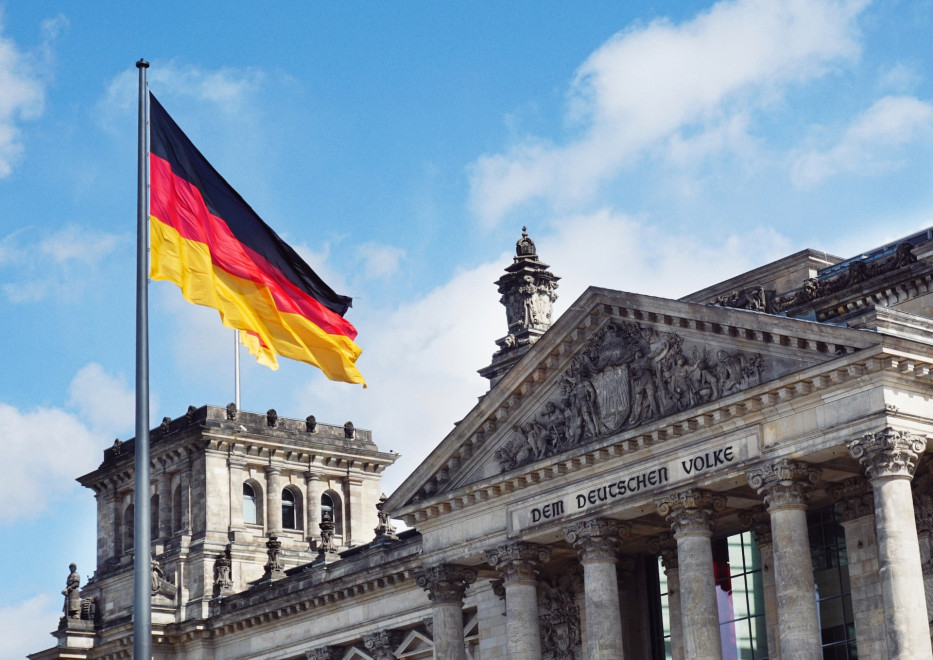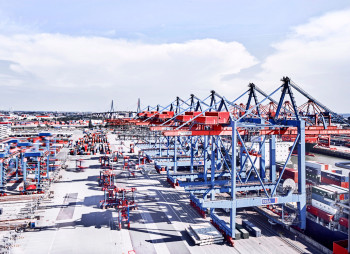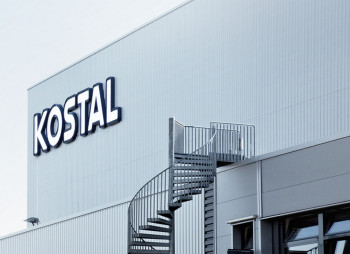The DFI, a subsidiary of Germany’s leading development bank, the Kreditanstalt für Wiederaufbau, or Credit Institute for Reconstruction, has a current portfolio of $70 million in investments in Ukraine’s private sector. KfW has an additional $1.4 billion invested in Ukraine’s public sector.
“We don’t want to wait until the war is over. Support must be constant,” said Roland Siller, CEO of DEG, which finances private sector development. He was speaking in the midst of the Munich Security Conference, a setting deliberately chosen to emphasize DEG’s message that support for Ukraine’s private sector is a global security issue, where threats to key sectors, like agriculture, could have global consequences.
Horizon Capital, a Kyiv-based private equity fund, is backing businesses that employ tens of thousands of Ukrainians, particularly in the technology and banking sectors. Horizon is often the only outside investor in the companies, said Lenna Koszarny, Horizon’s founding partner and CEO.
Those industries “are a hard currency lifeline,” she said, in addition to helping maintain internet connectivity and online banking services. “And we are helping to keep their businesses running.”
Horizon is able to do so, in part, with the support of DEG, which invested $20 million in Horizon’s Growth Fund IV last year. Ultimately, the private equity fund is trying to raise $250 million to invest in businesses in Ukraine and Moldova.
With the new funding, DEG is helping to keep the private sector afloat through the war, Koszarny said, including “reversing the brain drain” that could happen if people flee the country in search of jobs.
“We don’t want to wait until the war is over. Support must be constant.”— Roland Siller, CEO, DEG
DEG had previously channeled $10 million into another Horizon growth fund for Ukrainian small and medium enterprises in 2017.
Currently, DEG is focusing its investments on IT and private equity funds. The bank is also emphasizing the need for investments in the country’s private agricultural sector, which is teetering on the brink of collapse.
Ukraine is one of the world’s leading grain exporters, totaling nearly $28 billion in exports in 2021. Humanitarian agencies, like the World Food Programme, and countries around the world, including much of North Africa, are dependent on Ukrainian agricultural products.
Andriy Vadatursky took over one of Ukraine’s leading agricultural companies, Nibulon, last year after his father, Oleksiy Vadatursky, was killed by a Russian airstrike on the southern city of Mykolaiv in July. He said the 32-year-old company exported 5.6 million tons of agricultural products in the year before the Russian invasion. But the Russian blockade of the Black Sea, the major route for Ukrainian exports, nearly ground Nibulon’s shipments to a halt.
Nibulon received $20 million DEG financing in 2019 to help expand its business. And with costs mounting — including investing its own money in building an alternative export route along the Danube River — the company is now looking for similar support. There is some additional financing coming in. The International Finance Corporation launched a $2 billion response package for Ukraine’s private sector late last year, for instance, and Horizon has received $20 million in funding from FMO, the Dutch entrepreneurial bank.
The investments are not just about rescuing the private sector, but preparing for the future, said Niels Annen, who chairs DEG’s supervisory board and also serves as parliamentary state secretary for Germany’s Ministry for Economic Cooperation and Development, known as BMZ. He said there is a particular focus on sustainability.
He cautioned, though, that the demand far exceeds the capacity of the German government or the country’s DFIs.
“We’re trying to explain to German private sector investors, yes you can make money with investing in Ukraine,” he said. “BMZ and DEG can’t do everything, but DEG shows the possibility.”
Vadatursky is also pushing Germany to take additional steps to unlock investments, including spurring the Group of Seven to provide a war risk guarantee that would allow banks and private investors to put more money into Ukraine now.
“Banks are willing to finance, but cannot do it,” he explained to Devex in an email. “They are very regulated and follow the rules. And the rule says: the war is a risk. If there is a risk, we do not finance.”






